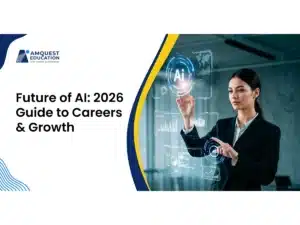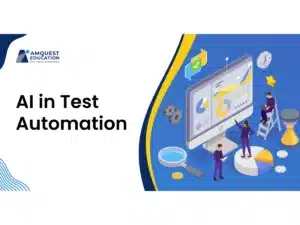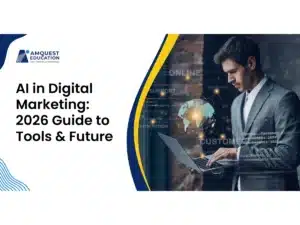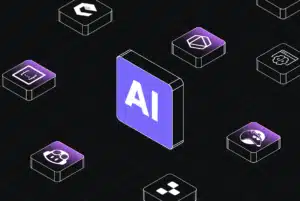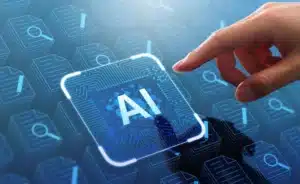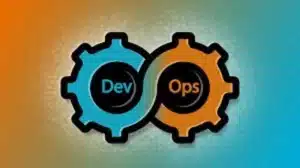Software Engineering in the AI Era: Evolving Practices for Agentic and Generative AI Integration
The rapid advancement of Agentic and Generative AI is profoundly reshaping software development, yet software engineering remains vital and increasingly strategic. Far from becoming obsolete, the discipline is transforming into a collaborative, creative practice that leverages AI’s capabilities while relying on human expertise for architecture, oversight, and innovation. This article explores why software engineering endures as a cornerstone in the AI era, highlights the latest tools and frameworks redefining the field, and presents advanced tactics for building scalable, reliable AI-powered systems. It also underscores the importance of best practices, cross-functional collaboration, and robust measurement strategies, supported by real-world examples to guide AI practitioners, software engineers, architects, and technology leaders. Professionals interested in a Gen AI Agentic AI course in Mumbai will find this perspective essential for aligning their skills with industry demands.
Understanding Agentic and Generative AI in Software Engineering
Agentic AI comprises autonomous systems capable of goal-directed decision-making and task execution without continuous human intervention. These systems dynamically plan, adapt, and interact with complex environments. Generative AI, by contrast, focuses on producing novel content, code, text, images, or designs, based on learned patterns. Together, they form complementary pillars of AI-driven software engineering.
Initially, AI in software development was limited to code completion and bug detection. Today, large language models (LLMs) and autonomous agents orchestrate complex workflows, automate testing, and manage continuous integration and deployment pipelines. This transition signifies AI’s evolution from a passive assistant to an active collaborator in the software lifecycle.
Despite these advances, software engineering remains indispensable for:
- Architecting systems that securely and efficiently integrate AI components while addressing AI-specific dependencies and scalability challenges.
- Steering AI behaviors to align with business objectives, ethical guidelines, and compliance mandates.
- Ensuring maintainability and robustness in AI-enhanced environments through human judgment and strategic oversight.
This shift redefines software engineers from manual coders to orchestrators and integrators of AI-augmented development ecosystems. For software engineers aiming to pivot into this domain, enrolling in a prompt engineering course provides foundational skills to effectively guide generative models toward desired outputs, a critical competency in modern AI workflows.
Cutting-Edge Tools and Frameworks Empowering AI Software Engineering
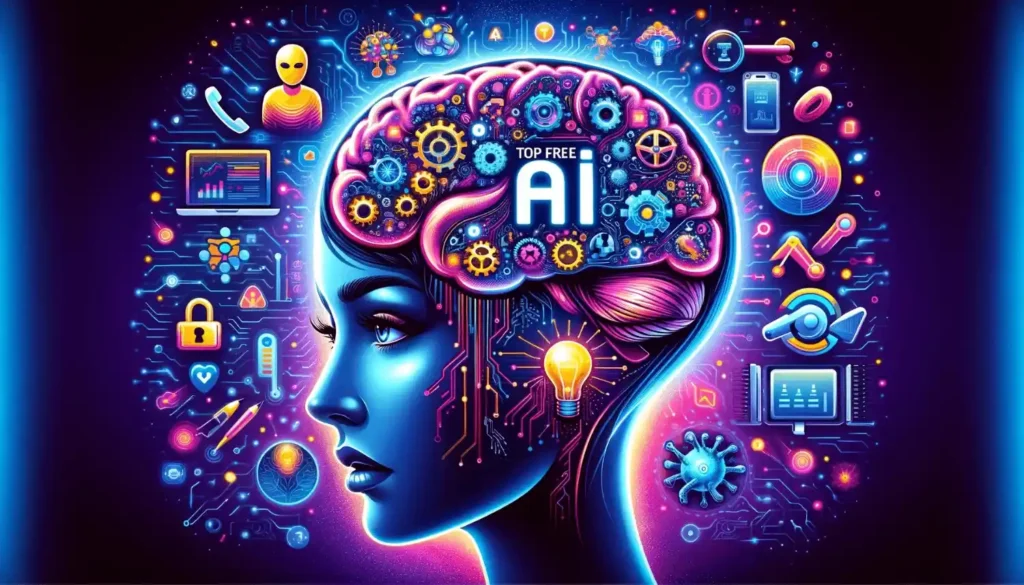
The AI-software engineering ecosystem is rapidly maturing, with innovative tools and frameworks supporting the full AI lifecycle:
- LLM Orchestration Platforms: Frameworks such as LangChain and LlamaIndex enable developers to construct complex applications by chaining multiple LLM calls, integrating APIs, databases, and user interactions. Recent updates include function calling and memory modules that enhance context management and interactivity.
- Autonomous Agent Frameworks: Open-source projects like AutoGPT and BabyAGI exemplify how agents autonomously plan, execute, and refine tasks with minimal human input, pushing automation boundaries in software workflows.
- MLOps Tailored for Generative AI: Traditional MLOps practices have adapted to generative AI’s unique needs, versioning large models, managing fine-tuning datasets, monitoring model drift, and integrating prompt versioning. Platforms like MLflow and Kubeflow now facilitate continuous fine-tuning and deployment pipelines optimized for generative workflows.
- AI-Powered IDEs and Developer Tools: Tools including GitHub Copilot, Amazon CodeWhisperer, and Tabnine provide context-aware code suggestions, automated refactoring, and real-time security vulnerability detection, significantly enhancing developer productivity and code quality.
- Security and Compliance Frameworks: Addressing AI’s complexity and regulatory scrutiny requires embedding frameworks like OpenAI’s usage policies and the NIST AI Risk Management Framework into development workflows. Emerging standards for AI transparency, fairness, and robustness are becoming integral to secure deployments.
These advancements enable software teams to accelerate AI solution delivery while maintaining rigorous quality and security controls. Engaging in the Best Agentic AI course with Placement Guarantee equips engineers with hands-on experience using these tools, bridging theory and practice effectively.
Advanced Engineering Tactics for Scalable and Reliable AI Systems
Developing AI systems that scale effectively and maintain reliability demands engineering approaches beyond traditional software practices:
- Modular AI Architectures: Designing AI components as loosely coupled microservices, for instance, separating inference engines, data preprocessing, and monitoring services, facilitates independent scaling, testing, and fault isolation.
- Robust Testing Strategies: AI introduces novel failure modes such as hallucinations, bias, and data drift. Specialized testing approaches including synthetic data generation, adversarial testing, continuous validation against real-world data, and behavior-driven development frameworks are essential.
- Observability and Monitoring: Comprehensive monitoring pipelines track model performance metrics (accuracy, latency), data distribution shifts, and user feedback. Early anomaly detection triggers retraining or rollback, ensuring consistent system behavior.
- Automated Retraining Pipelines: Continuous retraining workflows leverage fresh data, automated validation, and deployment orchestration to maintain model relevance without manual bottlenecks.
- Security Best Practices for AI: Protecting AI systems involves securing data pipelines, encrypting models, conducting adversarial robustness testing, and enforcing strict access controls to mitigate AI-specific attack vectors like model inversion or poisoning.
- Explainability and Interpretability: Integrating tools that provide model explainability aids debugging, compliance, and user trust, especially in regulated domains.
Mastering these tactics is a core focus of a Gen AI Agentic AI course in Mumbai, empowering engineers to build resilient AI systems that meet enterprise-grade requirements.
Software Engineering Best Practices in the AI Context
Core software engineering principles remain foundational amid AI innovation:
- Code Quality and Maintainability: While AI-generated code accelerates development, rigorous code review, refactoring, and comprehensive documentation remain critical for long-term sustainability.
- Version Control and CI/CD Integration: Managing versions of AI models, codebases, and datasets within integrated continuous integration and deployment pipelines ensures reproducibility, traceability, and rollback capabilities.
- Security and Privacy by Design: Embedding privacy and security considerations from design through deployment protects sensitive data and meets compliance standards like GDPR and HIPAA.
- Ethical AI Engineering: Engineers collaborate with ethicists and legal teams to incorporate fairness, transparency, and accountability mechanisms into AI systems, supported by engineering controls such as bias detection and mitigation workflows.
- Scalable Infrastructure Management: Leveraging containerization (e.g., Docker), orchestration (e.g., Kubernetes), and cloud-native architectures supports elastic scalability and efficient resource utilization.
- Prompt Engineering: Crafting effective prompts is now a vital skill for steering generative models towards desired outputs, requiring iterative testing and optimization integrated into development workflows.
These practices bridge AI innovation with operational excellence, enabling robust and responsible AI deployments. For those seeking structured learning, a prompt engineering course offers targeted skills to enhance model interaction and effectiveness.
Cross-Functional Collaboration: The Keystone of AI Success
AI projects inherently demand collaboration across diverse roles to succeed:
- Data Scientists curate datasets, develop models, and validate AI outputs.
- Software Engineers focus on integrating AI components, designing APIs, and managing deployment.
- DevOps and MLOps Teams automate infrastructure provisioning, monitoring, retraining pipelines, and CI/CD workflows.
- Business Stakeholders define objectives, success metrics, and user experience requirements.
- Ethics and Compliance Experts ensure adherence to legal and societal norms, guiding responsible AI use.
Effective communication, shared tooling, and unified platforms, such as collaborative notebooks and ML platforms, are essential to avoid silos and foster transparency. This multidisciplinary synergy ensures AI solutions are technically sound and aligned with strategic business goals. Software engineers aspiring to excel in this environment benefit from enrolling in a Best Agentic AI course with Placement Guarantee, which emphasizes collaboration and real-world project experience.
Measuring AI Deployment Success: Metrics and Analytics
Quantifying AI impact requires sophisticated analytics frameworks combining technical and business perspectives:
- Performance Metrics: Continuous tracking of accuracy, precision, recall, latency, and other model-specific KPIs in production environments.
- Business Impact Analysis: Linking AI outputs to financial KPIs such as revenue growth, cost savings, and customer satisfaction to justify investments.
- User Interaction Monitoring: Analyzing how users engage with AI-driven features to identify usability issues and enhancement opportunities.
- Operational Metrics: Monitoring system uptime, resource utilization, error rates, and latency to maintain reliability and optimize infrastructure.
- Feedback Loops: Incorporating user and stakeholder feedback into iterative model retraining and feature development cycles.
These insights enable data-driven optimization and continuous improvement of AI systems post-deployment. A Gen AI Agentic AI course in Mumbai often includes modules on defining and tracking these success metrics, equipping learners to evaluate AI initiatives effectively.
Case Study: Goldman Sachs’ AI-Driven Software Engineering Transformation
Goldman Sachs exemplifies large-scale AI integration in software engineering. Equipping over 12,000 developers with generative AI tools, including custom fine-tuned LLMs, they automated routine coding tasks and accelerated development cycles. Key challenges included:
- Integrating AI tools without disrupting stringent financial regulatory compliance.
- Ensuring security in highly sensitive data environments.
- Managing adoption across diverse teams through training and governance.
Solutions implemented:
- Strict access controls and audit trails for AI-generated code.
- Development of proprietary AI models fine-tuned on internal financial datasets.
- Cross-functional oversight teams to manage AI tool deployment and user support.
Results achieved:
- Developer productivity gains of 30-55%.
- Projected software cost savings between 20% and 40% by 2028.
This case underscores AI’s role as a productivity amplifier, reinforcing the irreplaceable value of skilled software engineers in designing, governing, and evolving AI-powered systems. Aspiring professionals looking to replicate such success should consider enrolling in a Best Agentic AI course with Placement Guarantee that integrates real-world case studies and hands-on projects.
Actionable Recommendations for AI-Driven Software Teams
- Commit to Lifelong Learning: Upskill continuously in AI fundamentals, prompt engineering, MLOps, and ethical AI practices.
- Adopt AI-First Development Environments: Leverage AI-powered IDEs and automated code review tools to enhance quality and reduce manual effort.
- Design for Modularity and Observability: Architect AI systems with clear interfaces and comprehensive monitoring to simplify maintenance and troubleshooting.
- Foster Cross-Functional Collaboration: Utilize integrated platforms and establish regular communication channels to align multidisciplinary teams.
- Embed Ethical and Security Considerations Early: Incorporate compliance, fairness, and security checks throughout the development lifecycle.
- Measure Impact Holistically: Combine technical, operational, and business metrics to evaluate AI system effectiveness and guide continuous improvement.
Joining a prompt engineering course or a Gen AI Agentic AI course in Mumbai can provide structured guidance to implement these recommendations effectively.
Frequently Asked Questions
Will AI replace software engineers?
AI automates repetitive tasks but cannot replicate human creativity, strategic system design, or ethical decision-making. Software engineering roles will evolve, emphasizing oversight, integration, and AI-human collaboration.
What skills should software engineers develop to thrive in the AI era?
Expertise in prompt engineering, AI model integration, MLOps, cloud-native architectures, data management, and ethical AI governance is crucial.
How do Agentic and Generative AI differ in software engineering?
Generative AI creates new content like code or text, while Agentic AI autonomously plans and executes tasks, enabling dynamic system behavior.
What are best practices for deploying AI systems securely?
Implement strict access controls, encrypt models and data, conduct adversarial testing, and comply with regulatory frameworks such as NIST AI RMF.
How can businesses measure AI deployment success?
By tracking model performance, operational reliability, user engagement, and business KPIs linked to AI outputs.
Why choose Amquest Education’s course on Software Engineering, Generative AI, and Agentic AI?
Amquest Education offers a comprehensive curriculum combining deep technical insights with practical deployment strategies. It emphasizes hands-on learning, cross-functional collaboration, and ethical AI practices, positioning learners to lead AI-driven software projects effectively. Its unmatched depth in both generative and agentic AI integrated with modern software engineering best practices ensures graduates are prepared for the future of AI-powered development.
Final Thoughts
Software engineering is not being replaced by AI; it is evolving alongside it. Agentic and Generative AI empower engineers to focus on higher-value tasks such as architecture, strategy, and ethical governance, while automating routine coding and testing. Success in this era requires embracing cutting-edge tools, adopting advanced engineering tactics, fostering collaboration across disciplines, and rigorously measuring AI impact. By understanding these dynamics and investing in continuous learning, AI practitioners and technology leaders can harness AI’s full potential to build scalable, reliable, and responsible software systems. For those seeking to deepen expertise, specialized programs like Amquest Education’s Gen AI Agentic AI course in Mumbai, prompt engineering course, and Best Agentic AI course with Placement Guarantee offer comprehensive, actionable guidance to thrive as software engineers in the age of AI.

